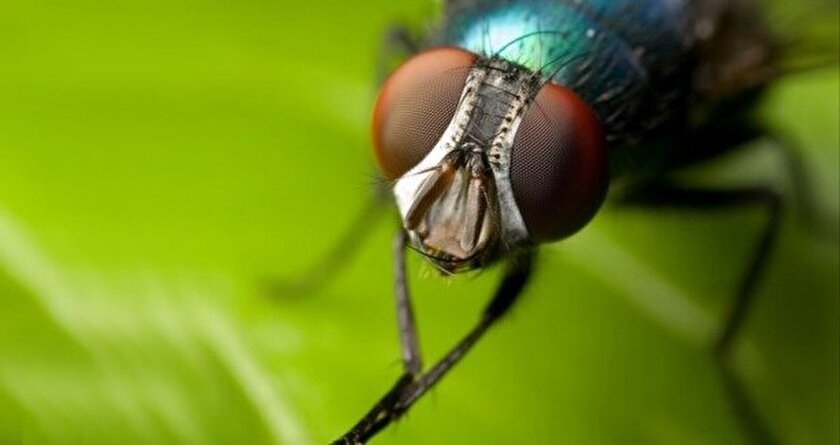According to scientists, houseflies may pose a greater risk to human health than is commonly believed.
Research from the University of Massachusetts Amherst in the US, published in the academic journal Insects, suggests that these insects may be carriers of disease-producing pathogens and transmit them to humans through what is known as “fly vomit”.
Flies typically feed daily on a variety of foods, including roadkill, animal feces, food waste and other garbage.
Each time a fly feeds, it fills its “ceca”. The ceca is the part of the fly’s anatomy where food is stored.
This food is then transported to the digestive tract, where it is converted into energy for the fly.
Because the gut is primarily for storage, not digestion, it contains very few digestive enzymes or antimicrobial peptides. If present, these enzymes neutralize pathogens.
Without them, the corm “inadvertently becomes a storage place for disease-producing pathogens,” experts explained.
As the fly moves on to the next feeding station, it gets rid of the excess water in its ceca through a process known as “bubbling”, i.e. spraying the water back up. This is commonly known as fly vomit.
For example, if the insect lands on your sandwich and regurgitates some of this water before filling its cavity, the disease-causing pathogens in the cavity can also be transferred to the sandwich.
The study found that although male and female flies visit feces in equal amounts, female flies (especially those that develop eggs) are more likely to feed on animal carcasses.
“A female developing eggs not only visits animal corpses more frequently, but also produces more vomit/defecation than females with eggs ready to lay,” the study added:
Females are therefore better anal pathogen and parasite spreaders.
John Stoffolano, professor of entomology in the university’s College of Agriculture, said earlier that most research has focused on biting flies, which spread disease by transferring infected blood from one host to another.
Stoffolano worries that non-biting flies, known as synanthropic flies, may pose a greater risk to human health.
And synanthropic flies have been largely ignored. The focus has been on blood-feeding flies, but we should also pay attention to those that live among us because they get their food from humans and animals that shed pathogens in their tears, feces and wounds.
Stoffolano added
“It is these little things that cause problems. Our health depends on paying more attention to these flies that live with us.

